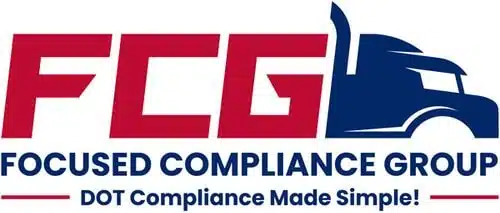BOI Reporting Updates for Trucking Companies: What You Need to Know

For trucking companies and other businesses subject to Beneficial Ownership Information (BOI) reporting under the Corporate Transparency Act (CTA), recent updates from the Financial Crimes Enforcement Network (FinCEN) have temporarily changed compliance requirements. These updates include developments regarding the boi reporting requirements and ongoing legal challenges related to the boi reporting rule, which have significant implications for U.S. citizens and domestic reporting companies.
At Focused Compliance Group, we help trucking companies navigate regulatory requirements to maintain compliance and avoid potential penalties. In this article, we’ll break down what BOI reporting is, the latest updates from FinCEN, and what your company should do next.
What is BOI Reporting?
BOI reporting is a reporting requirement under the Corporate Transparency Act, which mandates that certain U.S. companies disclose information about their beneficial owners—individuals who own or control at least 25% of a company or have substantial control over it. The purpose of this requirement is to prevent illegal financial activities such as money laundering and fraud by improving transparency in business ownership.
Trucking companies structured as LLCs, corporations, or partnerships may be subject to BOI reporting, depending on their classification under the CTA.
Who is Required to Report?
Under the Corporate Transparency Act, certain U.S. and foreign entities are mandated to report beneficial ownership information to the Financial Crimes Enforcement Network (FinCEN). These entities include corporations, limited liability companies, limited partnerships, limited liability partnerships, business trusts, and estates and trusts. Domestic reporting companies, including small businesses, are also required to report beneficial ownership information.
It’s important to note that the Treasury Department has announced it will not enforce penalties or fines against U.S. citizens, domestic reporting companies, or their beneficial owners as of Feb. 27, 2025. This temporary relief provides an opportunity for businesses to understand and prepare for their reporting obligations without the immediate threat of enforcement actions.
What Information Must be Reported?

The Beneficial Ownership Information Report (BOIR) must include detailed information about each beneficial owner and, if applicable, each applicant. Specifically, the report should contain:
-
The full legal name, date of birth, and residential address of each beneficial owner.
-
The full legal name, date of birth, and residential address of each applicant.
-
The name and address of the reporting company.
-
The type of entity and its business purpose.
-
The name and address of the company’s registered agent.
A beneficial owner is defined as an individual who exercises substantial control over a reporting company or owns or controls at least 25% of the ownership interests of a reporting company. Ensuring accurate and complete information in your BOIR is crucial for compliance.
Updated BOI Reporting Deadlines: What Has Changed?
On February 27, 2025, FinCEN announced that it will not issue any fines, penalties, or enforcement actions for failure to file or update BOI reports by the current deadlines. This enforcement pause will remain in place until new due dates are established through a forthcoming interim final rule.
Key Takeaways from Financial Crimes Enforcement Network (FinCEN)’s Announcement:
-
No fines, penalties, or enforcement actions will be taken for failing to meet the current BOI reporting deadlines.
-
FinCEN will issue a new interim final rule by March 21, 2025, extending the BOI reporting deadlines.
-
FinCEN will seek public comments on potential changes to the reporting requirements to reduce the regulatory burden on small businesses.
-
A formal notice of proposed rulemaking will be issued later in 2025, which may further modify deadlines and requirements.
This announcement signals that FinCEN is reconsidering the reporting process to ensure that only entities posing significant national security or law enforcement risks are prioritized.
Filing a Beneficial Ownership Information Report
Reporting companies can file their Beneficial Ownership Information Report (BOIR) electronically through the BOI E-Filing System, available on the FinCEN website. This system is user-friendly and free of charge, making it accessible for all reporting companies. For more information, visit fincen.gov/boi.
It’s important to be aware of your BOI reporting deadline, especially if your company is located in an area affected by a disaster. The deadline typically falls within a period starting one day before the disaster’s specified date and ending 90 days after. Ensure your company is in compliance by filing within these timelines.
Compliance and Enforcement

The Financial Crimes Enforcement Network (FinCEN) is tasked with enforcing the Corporate Transparency Act and ensuring that reporting companies comply with the beneficial ownership information reporting requirements. While FinCEN has the authority to impose fines and penalties on companies that fail to file or update their BOIR by the required deadlines, the Treasury Department has currently paused enforcement actions against U.S. citizens, domestic reporting companies, and their beneficial owners.
This temporary pause provides a window for companies to familiarize themselves with the reporting requirements and prepare for future compliance without the immediate risk of penalties.
What Trucking Companies Should Do Now
Even though the enforcement of BOI reporting deadlines is currently on hold, trucking companies should still take proactive steps to prepare for future compliance. The National Small Business Association has expressed concerns that BOI reporting requirements pose a significant burden on small businesses and is advocating for legislative solutions to alleviate these concerns. Here’s what you can do:
1. Determine If Your Company is Subject to BOI Reporting
Companies required to file BOI reports include LLCs, corporations, and other entities registered with a state’s secretary of state unless they qualify for an exemption. Exempt entities generally include large operating companies (more than 20 full-time employees and $5 million in revenue), government entities, and certain regulated businesses.
2. Gather Your Beneficial Ownership Information
If your company is subject to BOI reporting, collect the necessary details about each beneficial owner, including:
-
Full legal name
-
Date of birth
-
Residential address
-
Identifying document (passport, driver’s license, etc.)
3. Monitor FinCEN’s Updates for New Deadlines
While no action is required until FinCEN issues its new rule, stay informed about the upcoming March 21, 2025 interim final rule, which will provide updated reporting deadlines.
4. Prepare for Future Compliance
Even though the deadline is on hold, businesses should be prepared to file BOI reports once new due dates are announced. President Trump’s bold agenda, which included regulatory changes enacted by the Treasury Department, has led to the suspension of enforcement of the Corporate Transparency Act. It is likely that businesses formed in 2024 or 2025 will have adjusted timelines based on the forthcoming rule.
5. Consider Compliance Support
If you are unsure about whether your company needs to file, or if you want to streamline compliance, Focused Compliance Group can help. We provide expert guidance on BOI reporting, DOT compliance, and regulatory requirements tailored to trucking companies.
Common Mistakes to Avoid
To ensure compliance with the beneficial ownership reporting requirements, reporting companies should be mindful of common mistakes, such as:
-
Failing to file or update the BOIR by the required deadlines.
-
Providing incomplete or inaccurate information.
-
Neglecting to report changes in beneficial ownership.
-
Not maintaining accurate and up-to-date records.
Additionally, be vigilant against fraudulent schemes that may exploit beneficial ownership reporting requirements. Staying informed and cautious can help your company avoid these pitfalls.
Consequences of Non-Compliance
Non-compliance with the beneficial ownership information reporting requirements can lead to serious consequences, including:
-
Fines and penalties imposed by FinCEN.
-
Enforcement actions taken by FinCEN.
-
Damage to the company’s reputation.
-
Loss of business opportunities.
To avoid these negative outcomes, reporting companies should take proactive steps to ensure compliance with the Corporate Transparency Act. Understanding and adhering to the reporting requirements is essential for maintaining your company’s good standing and avoiding potential penalties.
Stay Ahead of Compliance Changes

Regulations surrounding BOI reporting are evolving, but staying informed is essential for trucking companies. While FinCEN has paused enforcement actions, businesses should remain proactive by understanding their reporting obligations and preparing for new deadlines.
At Focused Compliance Group, we specialize in compliance solutions for the trucking industry, ensuring that businesses stay up to date with DOT regulations, BOI reporting, and other federal requirements. Contact us today for expert guidance on staying compliant in an ever-changing regulatory landscape.
For more information or assistance, reach out to Focused Compliance Group today.
